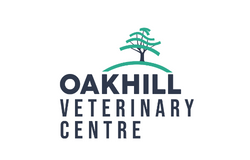Early diagnosis is key
The single most important factor affecting the success of calf pneumonia treatment is how early treatment is started. Treatment must be given as early as possible to minimise the degree of lung damage and reduce the risk of chronic pneumonia.
Detecting respiratory disease in the early stages requires careful observation. Calves may have a high temperature for up to 72hrs before they exhibit obvious clinical signs, such as an increased respiratory rate. Subtle signs to look out for include a slight delay in getting up to feed, a reduction in milk/feed intake, separation from the rest of the group, a clear nasal discharge, or a slightly depressed state.
Time to get the thermometer out
Any suspicion of a calf not being 100% should prompt a temperature check. Allocate some time daily to observe calf behaviour so that these subtle changes can be recognised.
If there has been a couple of cases of pneumonia in a group of calves, it is very wise to temperature check the whole group. It is impossible to tell which calf has a high temperature and who hasn’t without getting your thermometer out! Could you pick out someone who had a temperature increase of 0.1°C in a line of people without a thermometer?
Identifying the pathogen
Calf pneumonia can be caused by a range of pathogens including bacteria, viruses, and parasites. With regards to diagnostics there are two main options:
- Isolate the pathogen – nasopharyngeal swabs, transtracheal washes, post-mortem sampling, faecal sample (lungworm)
- Check if the animal has had an immune response against the pathogen – blood samples to check for exposure to pathogens
It is important to know what pathogens are causing pneumonia on your farm so that specific vaccinations can be selected, effective treatments can be utilised, and targeted management protocols can be put in place to prevent disease.
Dealing with an outbreak
Ideally sick calves should be isolated either on their own or as a group in a separate airspace away from healthy calves. Having a designated hospital pen will help to reduce the spread of disease to healthy calves. This allows for close monitoring of feed and water intake and assessment of response to treatment.
Although many causes of pneumonia are viral, secondary bacterial infection is almost inevitable and therefore all cases of pneumonia should be treated with antibiotics in combination with anti-inflammatories.
Anti-inflammatory will bring down high temperatures, reduce the degree of lung damage and inflammation and help feed intakes. The antibiotic that you choose may depend on which pathogens have been diagnosed on your farm, administration requirements and the duration of action.
Please get in touch if you would like to discuss your current pneumonia treatment protocols with us.
